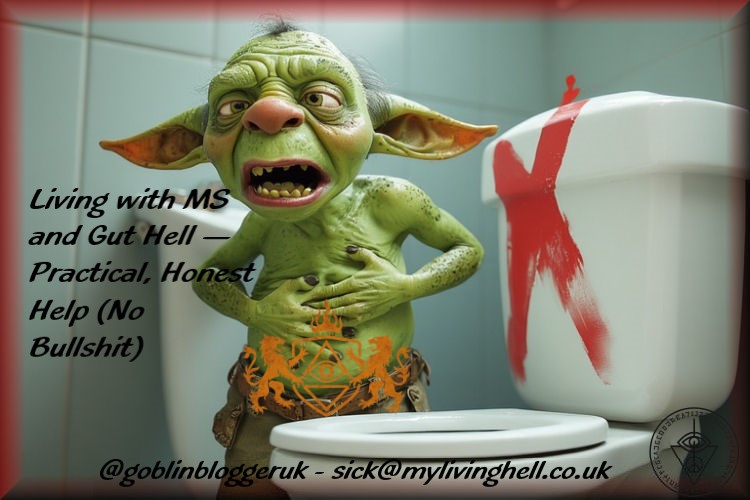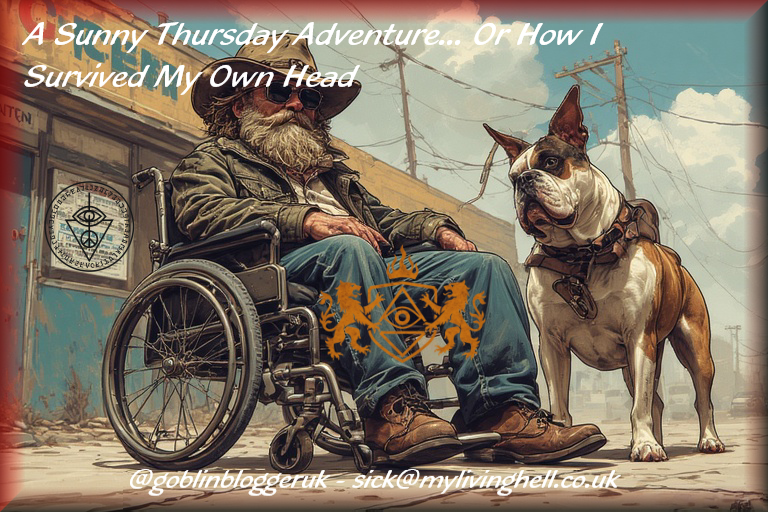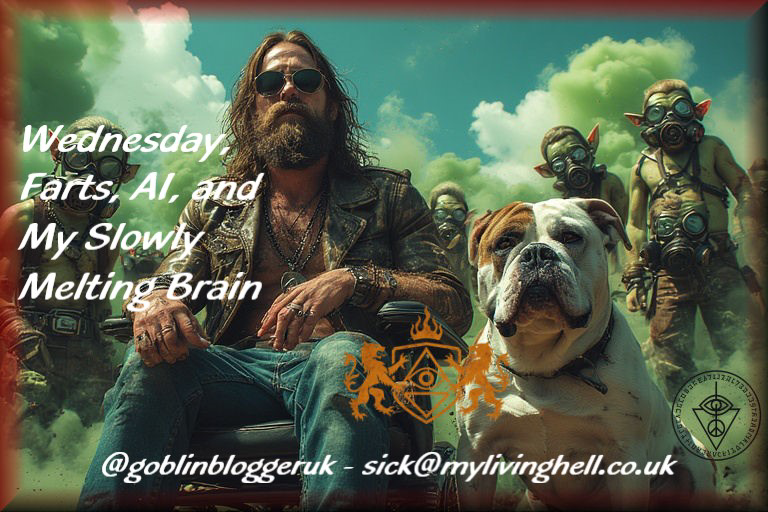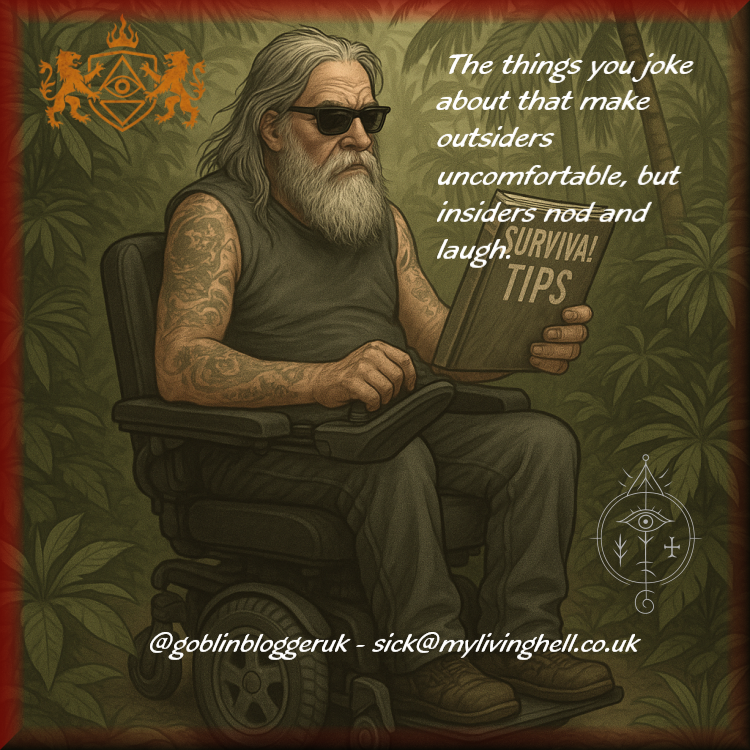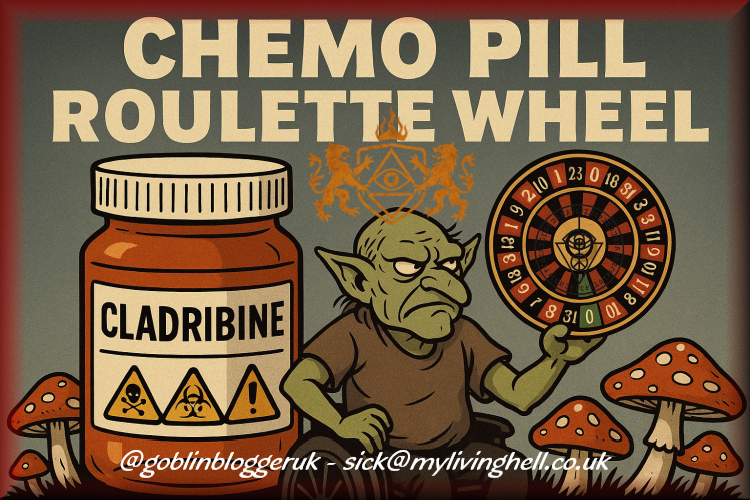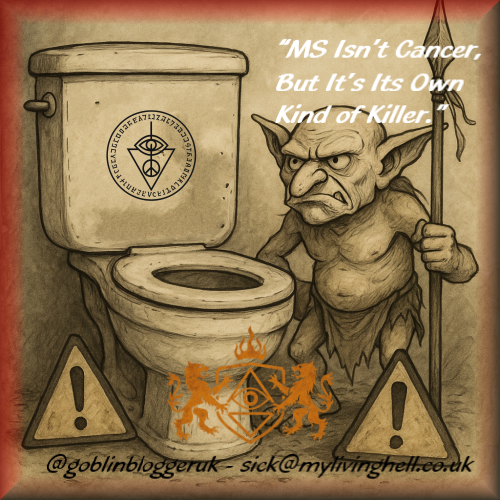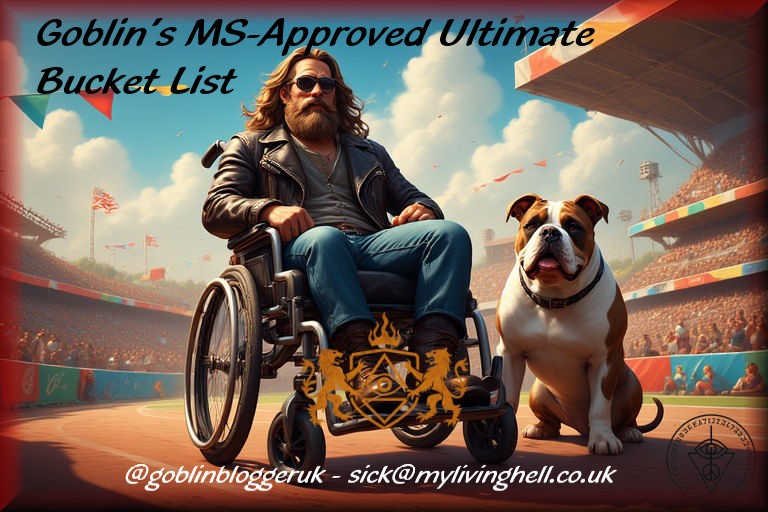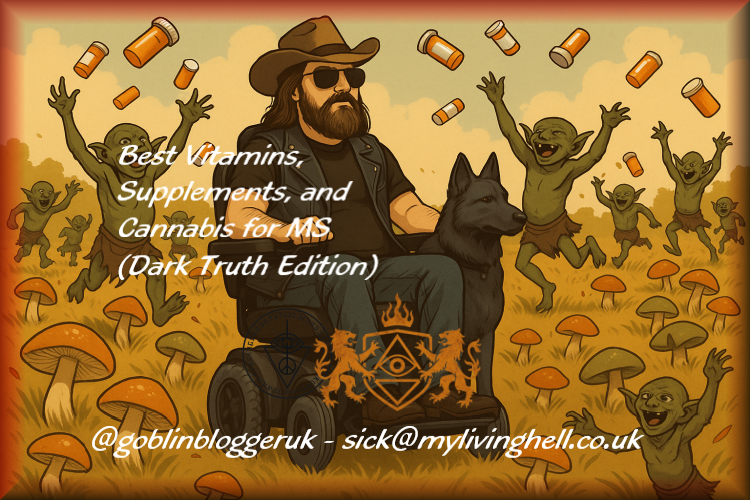⚠️ Please read with care: This blog shares personal, sometimes painful experiences. My intention is to support and speak honestly not to harm. I’m not a professional, just someone who understands how hard it can get. If you're struggling, you're not alone please reach out for professional help.
You already know MS scrambles more than your nerves it messes with the gut and bladder too. That can mean acid, watery stools, sudden urgency, and the humiliation of worrying about whether your next trip to the loo will be a disaster. I’ve been there. I’ve had cameras shoved where the sun don’t shine, biopsies, cuts, diverticulitis, and still I end up living on rice and eggs because other food set off acid poo so badly I was vomiting one day while clinging to the toilet. I’m not here to moralise I’m here to give you real, usable things that might help.
Quick medical reality check
Neurogenic bowel — bowel dysfunction caused by MS is common. It can produce constipation and sudden loose stools or incontinence, and sometimes the gut looks “inflamed” even when it’s not classic IBD.
PMC
+1
Bile acid malabsorption (BAM) is a real cause of watery, acidic stools and is often under-recognised; it can be treated.
Cleveland Clinic
+1
Practical management for faecal incontinence includes bowel programs, diet changes, anti-diarrhoeals, plugs, irrigation and pelvic/anal muscle work your continence service or MS team can help.
NICE
+1
What you can try now (practical, low-risk, and mostly natural)
These are the sorts of things you can do today. If anything makes you worse, stop and seek help.
Establish a bowel routine / scheduled toileting
Try going at the same time daily (for many people, after breakfast is best) — the gastrocolic reflex helps. A routine reduces surprise accidents and gives you control.
SCIRE Professional
Short food & symptom diary (1–2 weeks)
Record: time, food, medication, stool type (Bristol chart), urgency, pain. This helps spot triggers and shows your clinician patterns instead of “it just happens.” (I’ll attach a simple printable template below.)
Gentle diet moves that often help
Stick to small, bland meals when things are bad: rice, bananas, plain potatoes, cooked eggs (sounds boring, but it stabilises things).
If watery acidic stools are the problem, consider lowering fat (helps if bile acid issues exist) and trialing soluble fibre (e.g., psyllium) cautiously to bulk up stools.
Cleveland Clinic
+1
Hydration & electrolytes
Diarrhoea depletes salts fast. Sip ORS or salted broths and keep electrolytes up to avoid fainting and cramps.
Over-the-counter short trials (check interactions first)
Loperamide (Imodium) can slow transit and reduce urgency/frequency.
Bismuth subsalicylate sometimes helps odor/acidity.
If you try these, use the lowest effective dose and check with a clinician or pharmacist if you’re on other meds. The MS Society lists loperamide as commonly useful.
Multiple Sclerosis Society UK
If watery, acidic stools persist — ask about bile acid malabsorption
BAM is common and treatable with bile acid sequestrants (eg. cholestyramine). They bind bile acids and can firm stools, but they can cause constipation and interact with meds, so you’ll need guidance.
NCBI
+1
Consider tests for SIBO or microbiome issues
If diet and simple meds don’t help, a breath test for SIBO or stool tests may point to treatable causes. Altered gut flora can make stools acidic and loose.
PMC
+1
Practical kit to avoid accidents and stress
Absorbent pads/underwear (discreet, lifesaving).
Waterproof seat cover for your chair and spare clothes in a bag.
Anal plugs (foam plugs) or fibre/rectal options are available on prescription in some services — ask your continence nurse.
Multiple Sclerosis Society UK
Trans-anal irrigation (irrigation systems) can give excellent control for many people with neurogenic bowel. Talk to your specialist.
Bladder & Bowel Community
Pelvic floor / pelvic rehab where possible
Pelvic floor physiotherapy and pelvic muscle work can help with continence even in neurogenic cases. If you can access a specialist physiotherapist, it’s worth a try.
PMC
Skin care & dignity
If leakage happens, protect skin with barrier creams, cleanse gently, and change pads promptly. Having a plan (spares, wipes, little plastic bag) reduces panic and embarrassment.
When you must see urgent care or a clinician now
Passing bright red blood or black/tarry stools.
Severe abdominal pain, fever, or vomiting you cannot control.
Rapid weight loss or signs of dehydration (dizziness, fainting).
New severe symptoms you’ve not had before.
If any of those happen, don’t tough it out. Get urgent medical help.
What to bring to your clinician to be taken seriously
Your 1–2 week food & symptom diary (time-stamped).
A current meds and supplements list.
Any recent scope/biopsy reports (ask for copies).
Recent weight changes and blood tests (CBC, electrolytes, B12, vitamin D).
Say clearly: “I need tests for SIBO / bile acid malabsorption / stool inflammation — please consider breath test, SeHCAT or fecal calprotectin.” Those names help direct tests.
Cleveland Clinic
+1
A note on choice: natural, holistic, or medical your body, your rules
I personally prefer holistic approaches rather than piling on more pharma. That’s valid. Natural strategies and sensible diet changes can help a lot — and sometimes medical treatments make things worse. But don’t let anyone tell you your choice is “bad” or “stupid.” If you ever have blood in stool, crushing pain, fever, or severe dehydration — get medical help. Otherwise, work with a clinician who respects your preference and helps you test low-risk options first.
The honest bit (because I’ll be honest):
I’ve been through scope, biopsy, surgery, and still the worst days look like medieval torture. I nearly died on the toilet once or twice, you know what its like if you been there vomiting, pain, the whole show. I’m tired of the “try this pill” conveyor belt. If that resonates: you don’t have to accept every prescription. But bring data (a diary), know the red flags, and use services (continence clinics, specialist MS teams) who actually listen.
Sources & further reading (trusted links)
Review: Bowel dysfunction in MS — prevalence & management.
PMC
+1
MS Society guidance: managing bowel incontinence, practical measures.
Multiple Sclerosis Society UK
NICE guidance on faecal incontinence assessment and management.
NICE
Cleveland Clinic overview: bile acid malabsorption — causes & treatments.
Cleveland Clinic
StatPearls / research on cholestyramine (bile acid sequestrant) as a treatment option.
NCBI
I write in ink and fury, in breath and broken bone.
Through storm and silence, I survive. That is the crime and the miracle.
𒀭𒊩𒆳 ᚹᚨᚱᛚᛟᚲ ᚦᚱᚨᛁᚾᛋᚲᚨᚾᛞ ✧ 𒀭𒊩𒆳 ᛞᚨᚱᚲ ᚨᛁ ᚷᚾᛟᛋᛁᛊ
